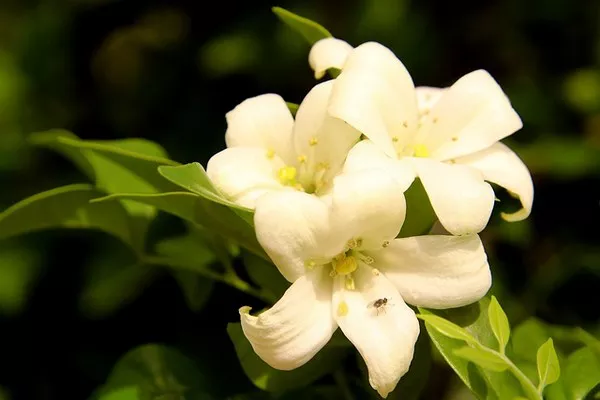In the vast tapestry of nature’s beauty, flowers play a pivotal role in expressing emotions, sentiments, and cultural nuances. White flowers, in particular, carry a unique and profound symbolism that transcends cultural boundaries. These pristine blossoms, with their timeless elegance, evoke a range of emotions and hold diverse meanings across various contexts.
Purity and Innocence
White flowers have long been associated with purity and innocence. Their immaculate color represents the absence of impurities, making them a powerful symbol in various religious and cultural traditions. In weddings, white flowers often take center stage, symbolizing the purity of love and the beginning of a new chapter in life. The bride’s bouquet, adorned with white blossoms, is a visual representation of the untarnished commitment and the hope for a pure and lasting union.
In many religious ceremonies, white flowers are used to symbolize the divine and the sacred. Their pristine appearance is believed to bring spiritual clarity and create an atmosphere of purity during rituals and ceremonies. Whether used in a church, temple, mosque, or other places of worship, white flowers convey a sense of reverence and holiness.
Sympathy and Remembrance
The solemnity and serenity of white flowers make them a poignant choice for expressing sympathy and remembering loved ones. White blooms, such as lilies and chrysanthemums, are commonly used in funeral arrangements to symbolize the purity of the departed soul and to offer condolences to grieving families. Their presence in funeral settings conveys a sense of peace, providing solace and comfort during difficult times.
In cultures around the world, white flowers are also associated with the concept of the afterlife. The delicate petals of white blooms are seen as a representation of the soul’s transcendence into a state of purity and peace. This symbolic connection between white flowers and the afterlife provides a consoling backdrop for memorial services and ceremonies.
New Beginnings and Fresh Starts
White flowers are often linked to new beginnings and fresh starts. Their clean and unblemished appearance signifies the opportunity for renewal and growth. In the language of flowers, the white blossom represents the blank canvas of possibilities waiting to be painted with new experiences and adventures.
Gifting white flowers to someone embarking on a new journey, whether it be a graduation, a career move, or any significant life change, is a thoughtful gesture. It not only conveys best wishes but also serves as a visual representation of the blank slate that awaits, ready to be filled with new memories and achievements.
Elegance and Timelessness
The timeless elegance of white flowers makes them a popular choice for various events, from weddings and celebrations to formal gatherings. Their understated beauty and versatility allow them to complement any color scheme or theme, adding a touch of sophistication to the ambiance.
In the world of fashion and design, white flowers are often incorporated to create a sense of refinement and grace. Bridal bouquets, centerpieces, and floral arrangements featuring white blossoms exude a classic and enduring charm. The simplicity of white flowers, whether used in a minimalist design or a lavish display, stands as a testament to the enduring appeal of elegance.
Spiritual Enlightenment and Transformation
Across different spiritual traditions, white flowers are associated with enlightenment and transformation. In Eastern philosophies, the white lotus holds special significance, symbolizing purity, spiritual awakening, and the journey towards enlightenment. The lotus flower’s emergence from muddy waters into a pristine bloom mirrors the human quest for transcendence and self-realization.
In Western cultures, white flowers are often used in rituals and ceremonies that mark significant life transitions, such as baptisms, confirmations, and weddings. The symbolism of purity and transformation is woven into these rites, signifying the spiritual growth and evolution of individuals as they embark on new phases of life.
See Also: Where Do Sunflowers Come From?All You Need to Know
Conclusion
The symbolism of white flowers is a rich tapestry woven with threads of purity, innocence, sympathy, new beginnings, elegance, and spiritual enlightenment. Whether used in celebrations, ceremonies, or moments of solace, white blossoms communicate a language that transcends words, conveying profound emotions and sentiments. In their pristine simplicity, white flowers continue to hold a special place in the hearts of individuals worldwide, adding a touch of grace and significance to life’s most meaningful moments.


